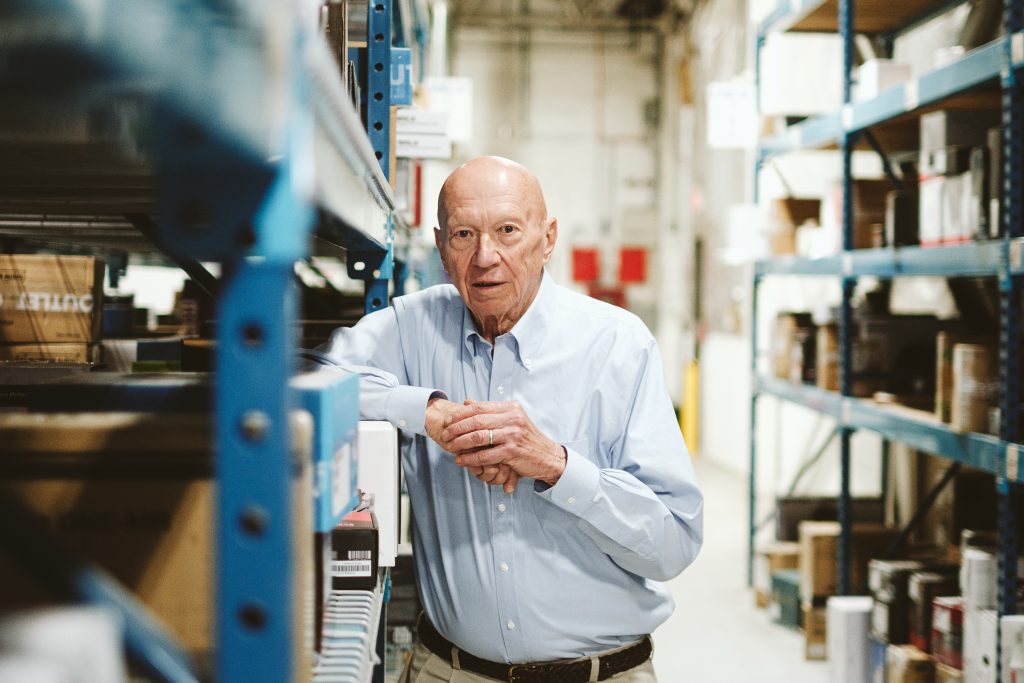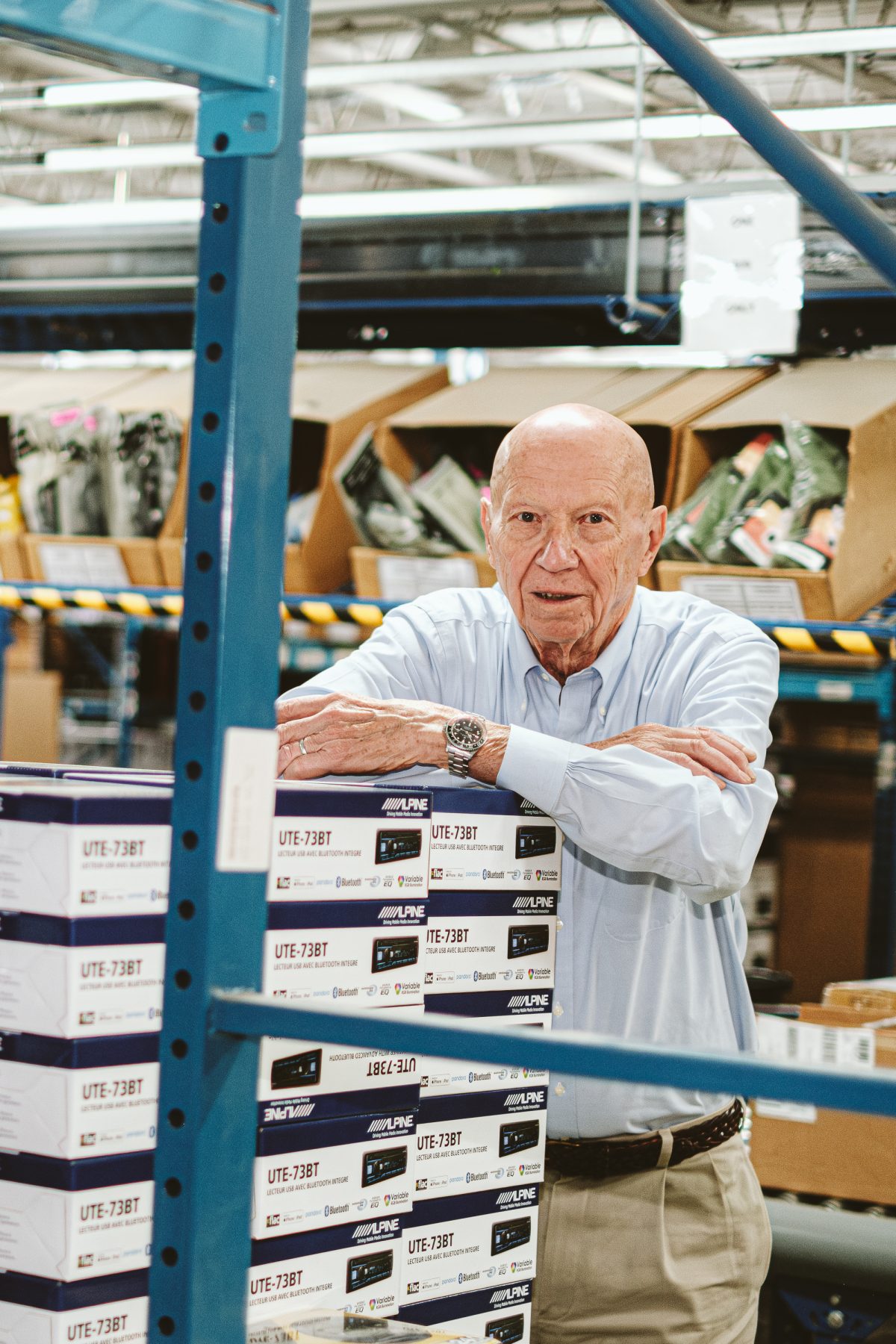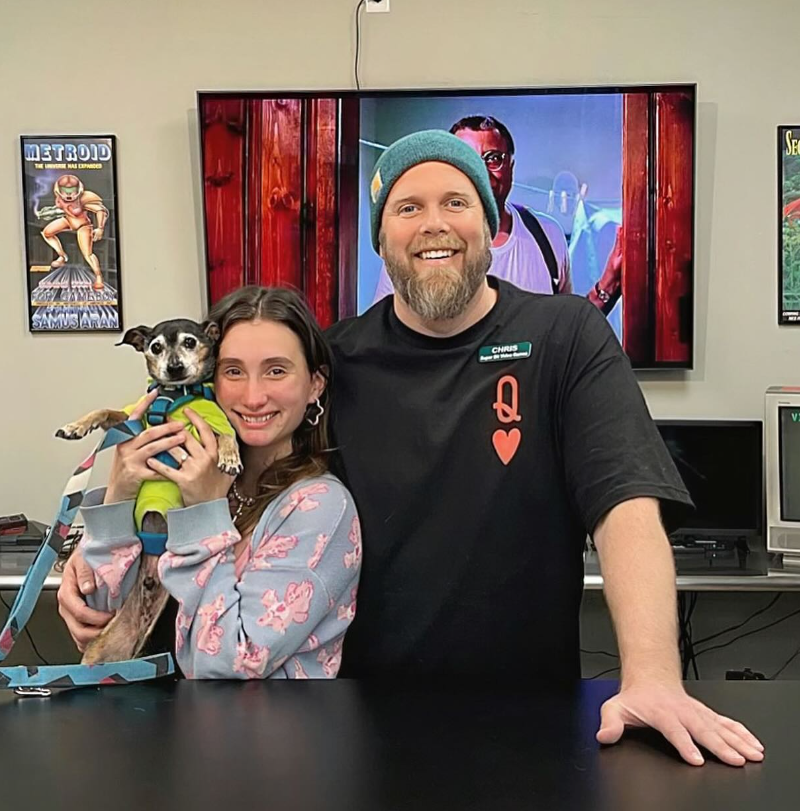Long before he was a successful businessman, pilot, and entrepreneur, it was evident that Bill Crutchfield’s fate was to be the main character of his story, whatever that may be. In 1950, at 8 years old, he built his first radio. At 13, he built what was, to the best of his knowledge, “the first stereo system in Virginia.”
“It was very crude by today’s standards,” he says. “I combined two sets of speakers connected to two separate mono hi-fi amplifiers in my bedroom. They were connected to a two-channel tape head mounted to an old office reel-to-reel tape recorder.”
Crutchfield’s father was the head of neurology at the University of Virginia, and a man his son describes as “an early adopter of technology.” That forward-thinking, open-mindedness wouldn’t simply be passed down to his son—it would be amplified by his talent, augmented by his experience, and harnessed as one of Bill Crutchfield’s greatest assets as an entrepreneur.
This aptitude for detecting trends, and Crutchfield’s ability to detect problems and solve them before they exist, were what helped him turn his modest car stereo business into an electronics empire that became one of Charlottesville’s flagship businesses.
“I wanted to restore old Porsches,” Crutchfield says. “And that’s when I noticed that there was a real lack of car stereo retailers. I thought it was a market that was really underserved at that time. That’s how I found my niche.”
Prior to the 1970s, car audio systems were something that came stock from the factory, and their availability from third-party retailers was extremely limited. Until the advent of the 8-track tape, the sound system in a vehicle was thought of as a luxury by many—an afterthought. By the late 1970s and early 1980s, as cassette tapes became the popular album format, car audio exploded into a million-dollar industry. By that time, Crutchfield had already established itself as one of the premier names in the business, not through the promulgation of retail stores like most of their main competitors, but through their mail-order business and the Crutchfield “magalog.”
“Our first catalog was a disaster,” Crutchfield says. “A lot of it was wiring diagrams we drew ourselves, and it just didn’t work very well. Our second one wasn’t much better. I thought it would be a good idea to start including articles about installing these devices in our catalog, but it went against everything people knew about advertising and marketing back then to use space for anything other than sales copy. But that was when we really started seeing some success, was with our ‘magalog.’”

While Bill Crutchfield was building his business, he says he worked 100 hours or more almost every week. He credits this work ethic, along with finding the right niche and even his name, as possible reasons for the success of his 50-year-old company. Photo by Eze Amos.
As the company was making its name in the mail-order business, Crutchfield’s retail store was becoming more popular in Charlottesville, and its advertising on radio and television in the area became inescapable. The company outgrew building after building, eventually constructing its headquarters and fulfillment center beside the Charlottesville Albemarle Airport.
Arriving at 1 Crutchfield Circle for the first time, I notice that the building is earth-sheltered, with the ground built up around it for temperature regulation. Forty years before “going green” was a thing, Crutchfield designed his company headquarters to be one of the most energy efficient commercial buildings in the world at that time. I walk through the door and, after a firm, old-school handshake, Crutchfield invites me to tour the facility with him.
We hop in his electric Mercedes-Benz, and silently glide through the rain between the three different properties that make up the Crutchfield complex. The first stop on the tour is the call center, a soft-white cubicle matrix dotted with personalized workspaces, comfy chairs, and baby gates used to keep people’s dogs confined in their own workspaces.
“We’re a dog-friendly company,” Crutchfield says, a bit of an understatement, given that every third person seems to have a furry friend with them.
Everywhere we walk, inspirational messages adorn the walls. At first glance, they seem like the pseudo-spiritual posters created to motivate employees stuck in the daily office grind. What I don’t realize is that what hangs on the walls at Crutchfield isn’t the trite clichés so commonly used as filler for blank office spaces. I am reading Bill Crutchfield’s core values, something everyone takes seriously, and with good reason: They saved his company.
It was the 1980s, and Crutchfield was struggling.
“Our 1982 sales grew significantly while our profits nosedived,” Crutchfield says. “In 1983, our financial situation worsened. Sales fell by 10 percent, and earnings turned negative. Our cash reserves dwindled rapidly because of these losses. By spring, I had to take out more short-term bank loans to help cover these losses.”
He sought help, and one vice president was vocal about his belief that Crutchfield needed to spend less on the quality of his magazine and customer support, and focus on matching his competitor’s prices. Crutchfield even got input from the University of Virginia undergraduate business school (for which he chaired the advisory committee). A professor wrote a case study that concluded, “Crutchfield Corporation has gotten bigger than Bill Crutchfield can handle.”
Crutchfield spent several weeks and months contemplating the problem, and the conclusion he came to was that the issue with his company was one of culture and not of capital.
“During this lonely intellectual probing, I read a statement which was so appropriate to our situation that it was almost uncanny,” Crutchfield wrote on the company website in a retrospective post. “It was made by Thomas Watson, Jr. during a lecture at Columbia University in 1962. The IBM chair said, ‘I firmly believe that any organization, in order to survive and achieve success, must have a sound set of beliefs on which it premises all its policies and actions. Next … I believe that if an organization is to meet the challenges of a changing world, it must be prepared to change everything about itself except those beliefs as it moves through corporate life.’
“Now I understood exactly what the problem was,” Crutchfield continued. “My company once had a set of common beliefs—my beliefs. When the company was much smaller, I was instinctively able to ensure that everyone adhered to my beliefs. As it grew, I had to delegate decision-making to others. As a result, my beliefs and the company’s beliefs gradually started to diverge. By 1983, they were vastly different. Since this change had occurred so slowly, I never fully recognized the problem until I read Mr. Watson’s comments.”
Crutchfield’s campaign to reinstill his values into the company he built began with the obvious task of defining those values. First, the total satisfaction of the customer is paramount. Second, respect for dedication to your fellow employees. Third, maintaining a commitment to excellence. Paramount above all three things, though, is a very simple, ancient maxim: Treat others as you want to be treated.
Through training, innovation, incentives, and discipline, he began to regain control of his company’s culture and morale. It was a crucial time, and it’s why many people, including Chief Human Resources Officer Chris Lilley and Chief Content Officer Amy Lenert, say the culture and camaraderie within the company is what makes Crutchfield such an amazing place to work.
“Working in creative [departments], there can be a certain amount of egos involved,” Lenert says. “That really just … doesn’t exist here. Honestly. Everyone’s really on the same team.”
“I came on in ’94,” Lilley says. “I thought I would be here maybe a couple years.”
Lilley says it was during the COVID-19 pandemic that the true commitment toward each other and the business really shined.
“We were open because the governor kept a lot of businesses with shipping capacity open in case they needed the distribution access for PPE,” he says. “So we were dealing with that, plus all the people working remotely, and in the middle of all that, sales went through the roof. It was up, like, 30 percent. I mean, it was crazy. And in the middle of all that, Bill came and we were talking and he said something I’ll never forget. He said, ‘You need to understand: You and I are responsible for 400 families.’ I think it’s even more than that now. But I think that’s what really makes me love my job, is having someone who shares my values and really wants to take care of people.”
When Lilley talks about Crutchfield—both the company and the man—“taking care of people,” it isn’t euphemistic. Crutchfield was the driving force behind smoking cessation programs in his company in the ’80s, back when you could still smoke on some airplanes. He was concerned about the environment when he built his primary corporate headquarters building in 1977. When Crutchfield recognized the negative environmental impact of styrofoam packing peanuts, he came up with a biodegradable, starch-based replacement that is manufactured in-house.
“Sometimes, I tell people from Charlottesville I work for Crutchfield,” Lenert says. “And sometimes they’re like, ‘the stereo store?’” in reference to the company’s retail space on 29 North near Rio Hill. “We’re a multi-million dollar company, with four huge buildings, hundreds of employees. … All I tell them is, ‘it’s so much more than a store.’”












